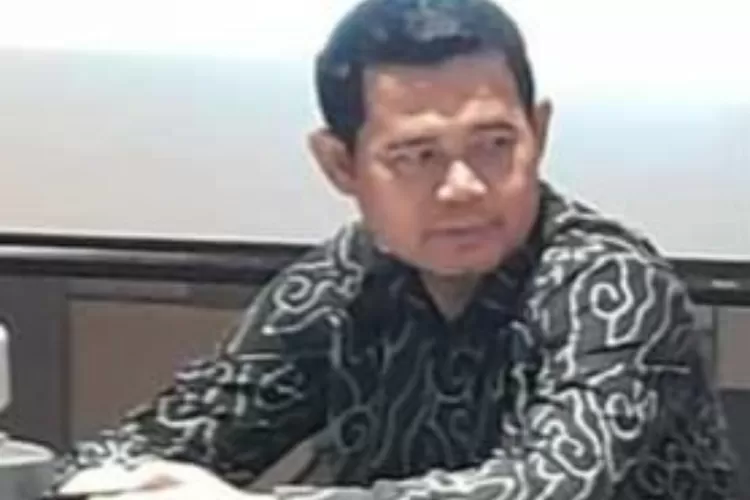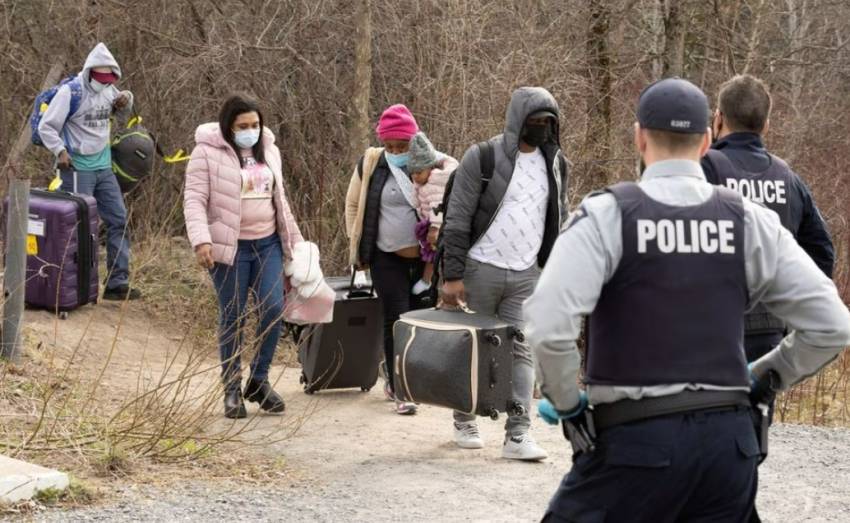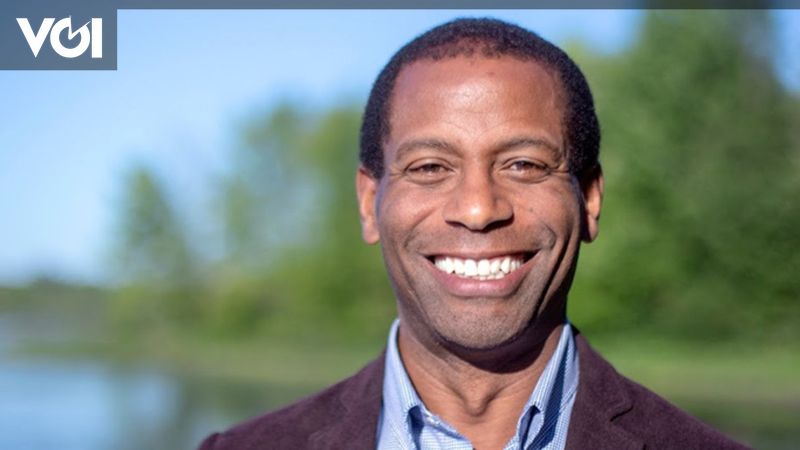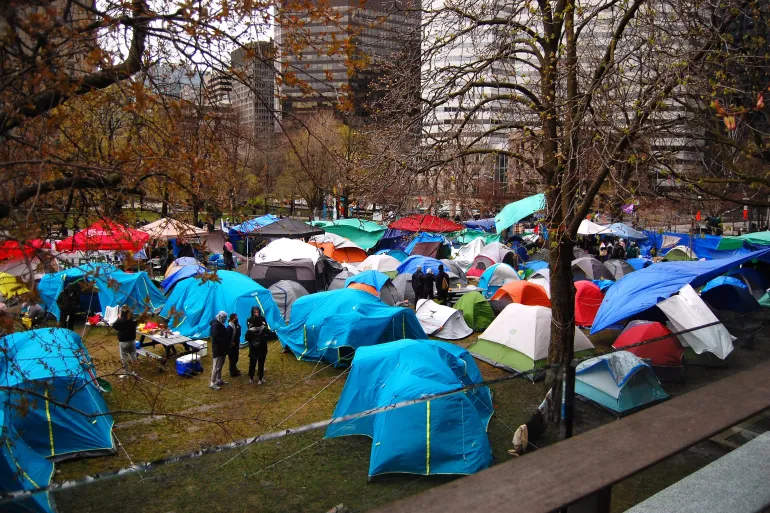HIDUPKATOLIK.COM – The Prefect of the Dicastery for the Promotion of Integral Human Development commented on the joint statement on “The Doctrine of Discovery”, published on March 30, 2023, highlighting the fact that the statement shows the recognition of historical attitudes that continue to be influential today.
The formal recording is the result of a process of dialogue and listening demanded by the Pope, who does not want to deny the “unfortunate stages” of the past, but recognizes them and places them in their historical context and also underlines their impact. on the future.
In an interview with Vatican media, Cardinal Michael Czerny SJ, Prefect of the Dicastery for Promoting Integral Human Development, concluded the joint statement on the “Doctrine of Invention” released Thursday, March 30, 2023. He said that the Holy See and the American bishops sincerely hope that this note, which regrets what happened, will help in healing and reconciliation with the indigenous peoples.
Vatican Radio: Can you tell us why the Holy See decided to publish a note on this so-called doctrine of discovery?
Michael Cardinal Czerny: The Holy See issued this statement, joint statement, regarding the Doctrine of Discovery, first and foremost, because the Indigenous peoples of Canada and the United States requested it. They had been asking for it for years, and they asked for it again when the Holy Father was there last year.
When I say “they”, obviously I am not talking about everyone, but there have been calls, repeated calls, urgent calls to clarify this, so to speak, this historical thorn in the side .
But it’s also important to note that Indigenous Canadians asked for a formal statement, so the statement is a formal statement. If you want to hear a pastoral response, you will not find it in this statement. In this case, you will return to the pastoral statements of Pope John Paul II and Pope Francis during their visit to Canada.
Or, remember that in Bolivia, in July 2015, I was there when the Holy Father, repeating John Paul II, asked the Church to kneel before God and ask forgiveness for past sins and presents from his sons and daughters, many sins of great things done to the Native Americans in the name of God during the so-called conquest.
Vatican Radio: Can you tell us, then, what was the scope and significance of the three 15th-century papal bulls in which the pope granted settlers the right to control the lands and property of indigenous peoples, and why some scholars consider these documents as the basis for the Doctrine of Discovery?
Michael Cardinal Czerny: Now we call these things “The Bull,” and that sounds like a very powerful and important name. But that just means it’s a statement with a seal on it. This is an official statement. This does not mean that it is an official teaching; it was simply a statement, as any head of state would – some sort of decision might be the simplest word for it.
So at that time the popes were not only the popes, so to speak, of the Catholic Church, but they were also the rulers of most of Italy. And in this role, you might say, as pope and head of state, the popes try to keep the peace between the other rulers who are all, more or less, Catholic.
So in this case the Pope was trying to prevent war and maintain order between Spain and Portugal, who would be at odds in their quest to colonize West Africa and North America and from South.
So Bulla said, “You can do it here and you can do it there.” Whether the Pope has the right to do this or not is another question, but politically, in this sense, he is trying to help, to avoid war. It was not until a few years later that the bubble became obsolete, as happened with the decrees. And in a few years, the Pope will, say, “sing a different song.” He supported indigenous or indigenous rights because the colonizers were actually unjust, you could say they colonized, but exploited, persecuted, enslaved, persecuted, etc.
That’s how we understand the Bulls in context and, in a sense, how they’re meant to play a certain role. And soon the content was, so to speak, turned upside down.
Although I have tried to touch on his story very quickly, that is not the main purpose of the statement. The Declaration does not seek to restore historical facts, but rather to help the Church, the members of the Church – and indeed all citizens of Canada, of the United States of America – to recognize what is, in fact, this sad story at work today. And that’s what drives, you might say, the passion and compassion behind this statement: to help us all cope – and when I say ‘all’, I mean both Indigenous peoples and those of ‘elsewhere. Not because it is history but because of its effect today.
Vatican Radio: The papal bulls talk about domination, conquest, land grabbing, they talk about slavery. How do you move on from a legacy like this? Is the current response adequate?
Michael Cardinal Czerny: When there is a legacy of painful language, moving forward is a bit tricky because, while it may seem best to forget about it and move on, it’s not really a cure.
On the other hand, spending all our time digging into the past to find out who said what to whom and how guilty they were is also not healing.
So I think what the process in Canada calls for, the public process and the process of the Church in Canada, is to enter into dialogue so that, on these things that are tense and painful, there is a listening mutual. And really listen to each other. It’s not just natives who need to talk, but also newcomers who aren’t native.
And we need, in this sense – and I think it was one of the achievements of the visit of the Holy Father – we need to learn to talk about colonialism today. And that’s something that I don’t think we… certainly when I was a kid growing up, we never thought about it. We read it like history, but we never thought it was possible now. Now we realize this is continuing.
And we, everyone involved, need to talk… I need to start with, sorry, everyone involved needs to listen. And when we listen and listen and listen, then we can start talking.
Vatican Radio: And could you clarify when historically the Catholic Church affirmed the inalienable rights of indigenous peoples?
Michael Cardinal Czerny: Well, it took a few years. These bulls date from the late 15th century, and by the early 15th century the language, teachings and responses changed.
But it’s a long and complex story and it’s not the only long and complex story of the development of the language of rights. If you compare the way the Church has spoken about this particular issue, the issue of indigenous peoples in the new colonies, with the language that has been used both about women, about children, about Jews, about non-Catholics, it is both good and terrible too. So there was a much more polarized, more aggressive, less respectful style of speaking and thinking that was typical of the time.
Vatican Radio: So where are we today?
Michael Cardinal Czerny: If you are interested in the evolution of history, perhaps one way of expressing the current commitment of the Church is to mention the principles of the United Nations Declaration on the Rights of indigenous peoples that the Holy See and the Church in Canada and the United States have been strong in their support.
So here is a contrast that we have to appreciate: the difference in language between the one thousand five hundred and two thousand, and that, although you may be sorry, and we are very sorry, for the way we spoke in one thousand five hundred, I think that when we ask the question today, we have to say that the language we use today is also not the one that we will find, for example, in the UN Declaration, that the Holy Headquarters supports and promotes with passion.
Vatican Radio: And Your Holinesses, you mentioned the Holy Father’s trip to Canada last July, July 2022. Can you tell us what impact the Pope’s visit to Canada had on this issue?
Michael Cardinal Czerny: I think one could say that the Pope’s visit in 2022 brings balm and attention to this issue.
On the one hand, these questions were raised because when boarding school survivors shared their testimonies with the Holy Father, they were actually telling him how colonialism, which one might say is a thing of the past, is the root of their immense personal suffering, so to speak, highlights the current effects of colonialism.
At the same time, it also made everyone more aware of the story. So when came the request, which has been coming for years, to formally clarify and refute this objectionable assertion, well, that, in a way, drives the effort we’re talking about today.
And maybe one way to sum up the real message, its real meaning, is that on the flight home from Canada, the Holy Father cursed – and now listen to this not with the ears of history, but with today’s ears, yesterday’s ears today; and everyone listens to each other – the Holy Father strongly condemns any imposition of one culture on another.
We don’t talk about history anymore. We don’t talk about history anymore.
And he highlighted not only the rights of Indigenous peoples, but also the many blessings, gifts and graces that come from their place in our diverse societies. **
Christopher Wells (Vatican News)/Frans de Sales

“Amateur problem solver. Hipster-friendly alcohol lover. Beer buff. Infuriatingly humble tv geek.”
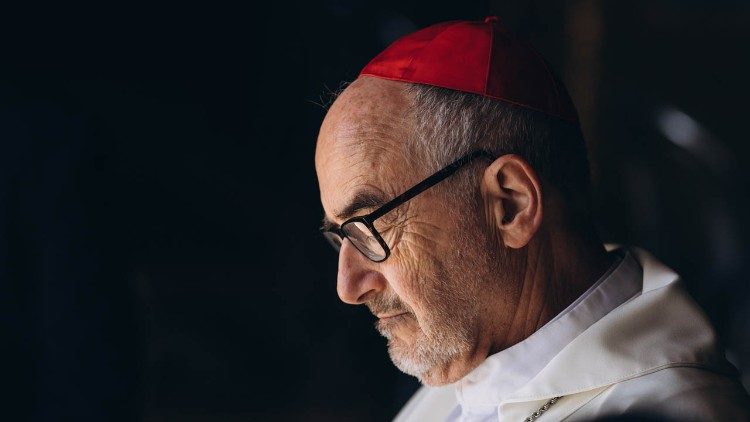

:strip_icc():format(jpeg)/kly-media-production/medias/4808693/original/081976300_1713760505-page.jpg)
